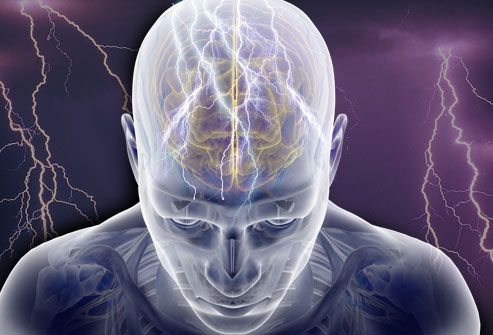Immunotherapy Helps ID Epilepsy Type
A few weeks of intravenous immunoglobulin (IVIG) or methylprednisolone was useful in determining whether epilepsy not responding to conventional drugs had an autoimmune origin, a researcher said here.
Among 29 patients with seizures unresponsive to conventional therapy and in whom autoimmune epilepsy was suspected, 6 to 12 weeks of intravenous methylprednisolone or IVIG led to significant responses in 18, with 10 becoming seizure-free, supporting a diagnosis of an autoimmune etiology, said Michael Toledano, MD, of the Mayo Clinic in Rochester, Minn.
He cautioned, though, that such a treatment trial could not establish a diagnosis by itself, as immunotherapy may reduce seizure frequency in patients whose illness has non-autoimmune causes.
Detection of specific autoantibodies targeting neural antigens and other factors must also be taken into account, Toledano told attendees at the American Neurological Association annual meeting.
Autoimmune epilepsy accounts for a small fraction of all patients with seizure disorders. But about one-third of patients with seizures do not respond to standard anti-epileptic drugs (AEDs), Toledano said, and, in this subpopulation, autoimmune epilepsy can be the reason.
At the World Congress of Neurology last month, an Italian group reported that immunotherapy helped about two-thirds of patients with AED-resistant seizures who tested positive for autoantibodies to neural antigens. Toledano and colleagues decided to explore the possibility that such responses may also help confirm a diagnosis of autoimmune epilepsy.
 They reviewed records of a total of 110 patients treated at the Mayo Clinic for seizure disorders: 32 who were the subjects of a 2012 report on autoimmune epilepsy and another 78 seen more recently, from January 2011 to September 2012. Among them were 29 with medically intractable seizures as the exclusive or dominant complaint, with an autoimmune cause suspected because of inflammatory markers in cerebrospinal fluid, MRI scan findings, positive autoantibody tests, or other factors.
They reviewed records of a total of 110 patients treated at the Mayo Clinic for seizure disorders: 32 who were the subjects of a 2012 report on autoimmune epilepsy and another 78 seen more recently, from January 2011 to September 2012. Among them were 29 with medically intractable seizures as the exclusive or dominant complaint, with an autoimmune cause suspected because of inflammatory markers in cerebrospinal fluid, MRI scan findings, positive autoantibody tests, or other factors.
These 29 also had 6 to 12 weeks of treatment with IVIG, intravenous methylprednisolone, or both. The treatment was not necessarily intended to be curative, but rather to confirm that the seizures would be responsive to immunomodulatory therapy.
About two-thirds of the patients had daily seizures prior to starting the regimen. These were typically brief and of the simple-partial type. Just over 60% of the patients had failed at least two different AEDs.
Toledano told MedPage Today that IVIG was chosen as the first treatment in patients for whom methylprednisolone was deemed less suitable because of past corticosteroid exposure, very young age, or known intolerance. Patients not responding to one of these medications were usually switched to the other.
 Of the 18 responders, 13 were followed for at least 6 months after being switched to long-term oral immunosuppressive drugs such as azathioprine or mycophenolate mofetil. Of the 13, 11 continued to show reductions in seizure frequency from baseline.
Of the 18 responders, 13 were followed for at least 6 months after being switched to long-term oral immunosuppressive drugs such as azathioprine or mycophenolate mofetil. Of the 13, 11 continued to show reductions in seizure frequency from baseline.
The number of patients in the study was insufficient to allow detailed analyses of differences between the 18 responders and the 11 nonresponders. But Toledano and colleagues collected what data they could. Among the highlights:
About half of patients initially failing IVIG or methylprednisolone and switched to the other drug subsequently showed a response.
With 16 of 29 patients testing positive for antibodies to plasma membrane antigen (PMA), 14 responded to the treatment; only four of 13 patients who were PMA antibody-negative responded.
Testing positive for other autoantibodies to neural antigens did not appear to improve the likelihood of response in PMA antibody-negative patients.
Toledano said that the time course of responses to the treatment trial suggested that shorter treatment, lasting 4 to 6 weeks, would probably serve as well.
He recommended a randomized, crossover trial to compare IVIG and/or intravenous methylprednisolone with placebo in patients with suspected autoimmune epilepsy.
The study had no commercial funding.
Toledano declared he had no relevant financial interests.
Primary source: American Neurological Association
Source reference: Toledano M, et al “Pilot study of immunotherapy as a diagnostic test in evaluating patients with presumed autoimmune epilepsy” ANA 2013; Abstract S502.